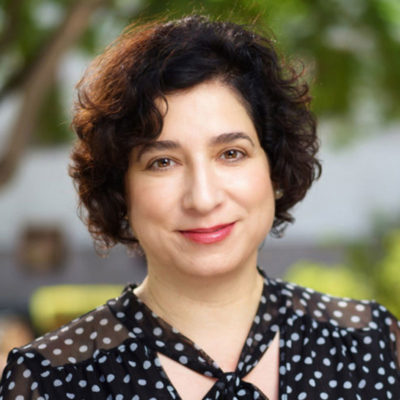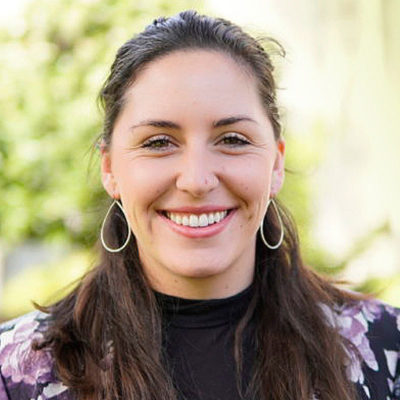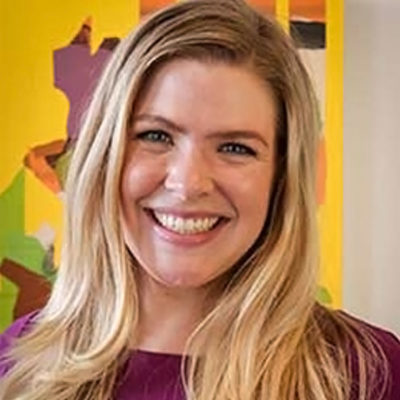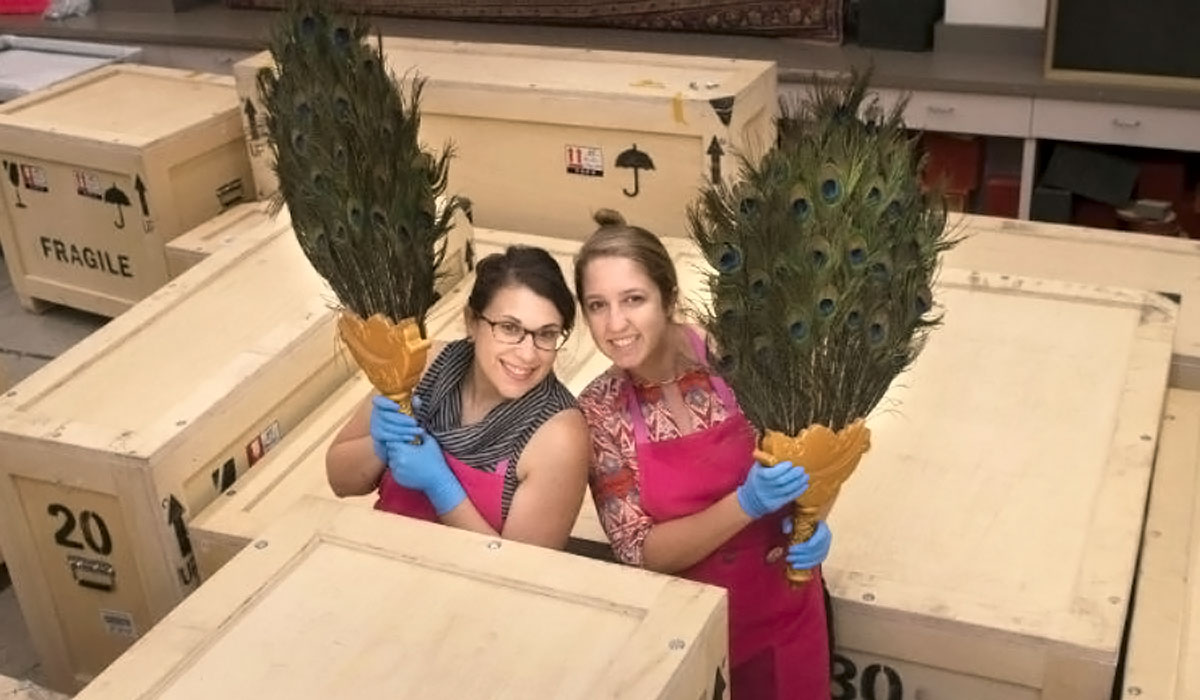How POLARIS Creates a Silver Lining for Museum Professionals in the Pandemic
When Victoria Gerard (MA, Arts Management, 2015) decided to make a switch and move from Philadelphia to Southern California, she faced a problem.
It didn’t have to do with packing, getting her family ready, or the logistics of moving her belongings across country. Instead, it had to do with her professional network.
That was the one thing that couldn’t move with her. Most of Gerard’s connections were rooted on the East Coast, and she faced having to build a whole new network in the greater metropolitan Los Angeles area.
Network-building, though, is a time-consuming activity. So, Gerard did what many people do to speed up the process: She sought help somewhere else. In her case, she turned to her family.
“I went through a family friend to make a connection with an independent curator in LA, and that helped me get closer to finding a job,” recalled Gerard, who had been involved in curatorial work at Independence National Historic Park before traveling west. “The museum world is a small field, and it’s so interconnected, but it still takes a lot of time. There’s never a guarantee the people in your circle will have the connections you need.”
Gerard has since built up an excellent network in Southern California, as well as an impressive professional resume. Recently she was appointed deputy director of the Laguna Art Museum—prior to that, she served as vice president of programs and collections at the Bowers Museum in Santa Ana.
A tool like this is great in helping you get oriented and learn how to reach out in approachable ways to people in the field. If POLARIS had existed when I was first looking, it would have changed my whole search.” — Victoria Gerard
The challenges Gerard faced are similar to what many in the museum leadership field are facing now—and the isolation created by the pandemic has only made the situation harder.
Thankfully, the Museum Leadership Institute at CGU has provided a silver lining.
Over the last 18 months, the institute has enjoyed much success in recruiting members to join POLARIS, an online leadership mentoring and networking platform launched just as the quarantine began. The platform aims to foster greater connections, learning opportunities, and a sense of community in an industry where access to careers and advancement isn’t always clear.
Since its national launch in April 2020, membership has surged to more than 1,000 registered users. The platform addresses a crucial need for Gerard, who has made herself available as a mentor on POLARIS.
“A tool like this is great in helping you get oriented and learn how to reach out in approachable ways to people in the field,” she said. “If POLARIS had existed when I was first looking, it would have changed my whole search.”
Creating a Lifeline
Spearheaded by MLI@CGU Director Toni Guglielmo, POLARIS was developed and launched at a moment when no one had any idea what quarantine would like or how long it would last.
The timing, it turns out, couldn’t have been better.

“Starting a new project during a global pandemic has been problematic for so many organizations, but it wasn’t for us,” explains Guglielmo, the associate editor of Curator: The Museum Journal who received her doctorate at UC Santa Barbara. “It soon became clear POLARIS was a timely response when in-person programs and communication channels were being suspended. It gave our museum professionals a lifeline as they faced a level of professional and social isolation most had never experienced before.”
Made possible in part by a three-year grant from the Institute of Museum and Library Services, the online mentoring platform brings together museum professionals—from emerging professionals to veterans and retirees—to connect and communicate in collective, collaborative, and supportive ways.
According to recent government data, there are more than 35,000 museums across the United States. Every year, they receive millions of visitors and employ thousands of workers in gift shops and ticketing, installations, curating, archiving, and storage. Many jobs are hidden from the public’s naked eye but are vital in the museum business.
Despite these considerable numbers and the common ground they share, many museums often operate like individual islands surrounded by the sea. It isn’t that they aren’t receptive to inquiries or questions from others in the field, but it can be very hard to gain access and find the right opportunity.
“Museum professionals can sometimes feel they have to ‘go it alone,’ which has been exacerbated by the isolation of the pandemic,” Guglielmo says. “We designed POLARIS with the exact opposite in mind. We wanted to counter those challenges and make it easier to bring these professionals together.”
Networking, Curriculum, Webinars
Along with providing a blend of networking features reminiscent of LinkedIn and other professional development websites, POLARIS offers a rich selection of mentoring curricula that includes self-study modules and virtual webinars. In addition, partnering with LeAD Labs, a leadership consultancy housed at CGU, the curricula provide a range of leadership assessment and development services.

For Krista Jensen, who serves as the LeAD Labs’ director of consulting and has been involved in developing the POLARIS curriculum since day one, what sets this platform apart from others is its focus on nurturing and sustaining relationships between mentors and mentees.
“Opportunities for mentoring relationships are really at the crux of POLARIS,” says Jensen, a doctoral student in the university’s positive organizational psychology program. “We’re supporting relationships between established professionals and folks fresh to the field and offering them resources to help them become good mentors and mentees.”
Jensen points out that mentees aren’t the only ones who benefit from using POLARIS.
“There are two sides to networking,” she says, “and we want everyone to remember that mentoring relationships are reciprocal in nature. It’s just as much of an opportunity for growth for the mentor as it is for the mentee.”
‘Collaborative But Opaque’
When Lauren Miyamoto (MA, Arts Management, 2019) was looking for a job, she spent time doing homework.
Lots of it.

“The museum leadership world is collaborative but opaque,” says Miyamoto, who serves as an advancement operations manager with the Museum of Contemporary Art San Diego. As a graduate student, she had worked as an assistant during the development of the POLARIS platform.
Like Gerard, Miyamoto sees the immense value in POLARIS as she reflects on her own experiences. She describes how she built endless lists of contacts in the industry to provide her with—if not a job opening—some helpful guidance.
“The hardest part of the process involved some of the most basic things,” says Miyamoto, who remembers scheduling as many informational interviews with industry contacts as possible.
The problem for her was that it was never clear who would prove the best contact.
Jobseekers in the pre-POLARIS days, Miyamoto explains, were confronted with several challenges: the first involved simply identifying the right contacts, followed by finding their contact information (not always an easy feat), reaching out, and trying to persuade them to take time to talk, and then scheduling an actual interview.
She went through that process, and it paid off—she landed a job on the fundraising side as a development coordinator with the Hammer Museum. But then, in mid-2020, as quarantine continued, her husband received a job offer too sweet to refuse, and her family’s relocation to San Diego forced her to let go of this plum position and begin the hunt anew.
What was different this time around? POLARIS.
“Suddenly, I was staring down the barrel of a job search again, which was a stressful prospect,” she recalls. Still, she connected with a senior member of fundraising at the Metropolitan Art Museum through POLARIS. That connection gave her the advice and help she needed to make her career transition.
“POLARIS provides a framework and structure to make everything so much easier,” she says. “It gives you a starting point that says, ‘here’s a list of people willing to talk to you.’ You don’t have to send out countless query emails just to find the right connection. You can customize and start pulling from a list of willing people, which is fantastic.”
Attracting Younger Users
LeAD Labs’ Jensen has noticed an encouraging trend among members joining POLARIS now: There’s a large influx of students and recent graduates.
“This is really exciting and different from what we’ve seen in the past with other programs that we’ve done with the institute,” she explains. “We’ve already been working with many established museum leaders for a while. Now it’s very exciting to see that, on POLARIS, we’re supporting a lot of folks who are just starting out on their potential career paths.”
For Jensen, having this influx of newcomers is important not just because it’s nice to have a wide variety of members at all experience levels. It’s important because it illuminates issues of diversity and representation.
“One of the strengths of the POLARIS model is that these resources are accessible to anyone no matter your socioeconomic status. You have virtual webinars and hands-on things to help you learn,” Jensen says.
Some of POLARIS’s self-study material also reflects diversity and social injustice challenges that reached a fever pitch in 2020. That’s important, Jensen adds, and can be “incredibly impactful in helping new professionals develop the best skills before the bad habits have a chance to start.”
Gerard agrees.
“It’s not just the platform’s efficiency that’s so great,” she says. “We’re at a moment in history when inclusiveness is a priority for many organizations. That’s important because some larger museums haven’t been listening to the voices of everyone on their staff. I see POLARIS as a way of encouraging inclusivity. It’s a way of getting everyone to start talking to each other and breaking down those barriers and healing some perceptions of the field.”
Joining POLARIS is currently free under the three-year federal grant. When the funding to support POLARIS ends in 2022, Guglielmo says she hopes to find other means to keep the platform running. She wants to continue providing a mentoring and networking space for POLARIS’s growing community. She also says it’s vital that POLARIS continues because it is the future of leadership training and support.
POLARIS, she says, offers “a new model for leadership development that’s inclusive, egalitarian, and accessible. Developing new museum leadership models of shared power that are collaborative and cross-departmental and that build organizational capacity has been in the works for many organizations. But, like so many things, the pandemic has been a catalyst for these transformations.”
RELATED MATERIAL
- The POLARIS project has been made possible in part by the Institute of Museum and Library Services (MG-70-19-0055-19-0). Visit here for more about the Institute of Museum and Library Services https://www.imls.gov/
- More about POLARIS
- MLI Receives Major Grant to Launch Polaris
- About the Museum Leadership Institute
- Laura Zucker named director of the Center for Business & Management of the Arts
- Video: Museum Studies at CGU
